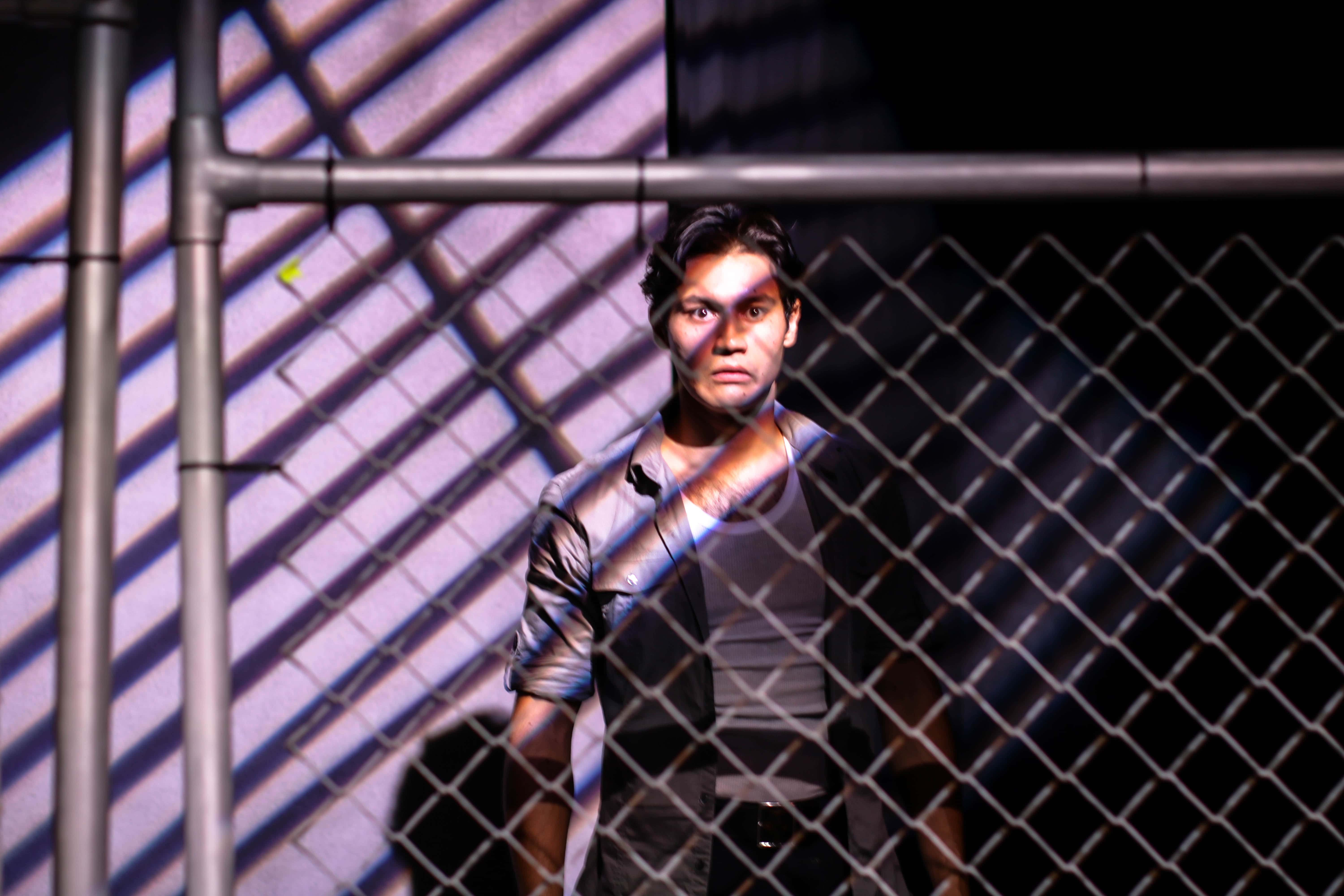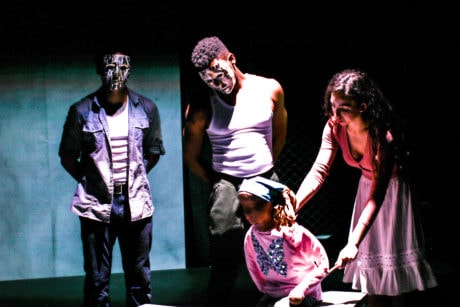Sunday morning, before I drove from my home in Western Maryland to see Convergence Theatre’s production of A New Nation, I noted the following in a letter to the editor of my local newspaper:
“There has been so much negative press about the way immigrant children have been treated at the border. People are complaining about children who have been separated from their parents…Oh, the people who are complaining have no idea…These children, many of whom are with traffickers, gang members, and drug runners, are being used to get into the U.S…The Government is trying to find relatives but that is not easy. There are just too many coming across the border to handle and they can’t just be free to enter the U.S…”

In the letter writer’s view of the world, the “they” out there – an abstract, impersonal mass, consisting mostly of criminals cleverly using children from whom they will soon be separated to gain entry – clearly have no basis for their unhappiness with government immigration policies.
The overarching point of the Convergence theater piece is that there isn’t any “they.” There are individual people, all with names, dreams, hopes, fears, and children of their own. Using four excellent actors – Fabiolla da Silva, Sebastian Leighton, Cristian Camilo Linares, and Karoline Troger – and a skilled production team, the group, under the direction of Natalia Gleason-Nagy and Elena Velasco, has devised a series of spoken, projected, and movement vignettes (“snapshots”) that vividly present the thoughts, feelings, and lived realities of immigrants’ journeys. Rather than having a linear plot, A New Nation creates a mosaic of the current immigrant experience.
The technical production is an integral, precisely coordinated, part of the storytelling. Tewodross Melchishua Williams’ projections sometimes are a scene unto themselves, as when, at the outset, “Dreamers” tell their stories or, later, when a woman feeding her chickens explains her opposition to immigration. Other times, the projections flow in and out of the live action. To accompany a story about an immigrant working in a meat-packing plant, a projection shows the operation of a machine in such a factory. An actor mimes picking a butterfly decoration off another actor’s shoulder and tossing it into the air; in a particularly sweet moment, a projected butterfly then flutters across the screen.
The vignettes are typically accompanied by music, often electronic, sometimes guitar (live or recorded), in Drew Weinstein’s effective sound design. If, as lighting people like to say, theater lighting is to stage work as the camera is to making movies, P. Precious Porter’s design creates sharp close-ups, tight group shots, as well as wide-angle use of the space. The Black Box theater at the Anacostia Arts Center is rather small; the lighting design both opens and focuses its possibilities.
There’s not a moment in the 70-minute production that fails to maintain an audience’s intense attention. One of the scenes that I found particularly memorable was Troger’s turn as the beleaguered nanny to the children of a very entitled, apparently wealthy, woman. Leighton delivered a passionate and poetic statement in which he speaks of dreaming in color. The ensemble scenes, involving a great deal of well designed and executed physical theater movement, were equally compelling. At one point, actors grab sections of chain-link fence to create a detention facility. At another, the actors repeat, and crescendo, the questions asked of asylum seekers, while projections of the questions appear on the screen.

This is the third iteration of Convergence’s work on immigration. If there are future iterations, it would be interesting to see if and how the group might choose to consider present-day immigration issues in the context of the country’s immigration history. Think, for instance, of paralleling the immigration questions scene with something on the things asked of immigrants at Ellis Island. Think of “Build the Wall” in juxtaposition to the Know-Nothings, the Chinese Exclusion Acts, or the immigration law of 1924 (which effectively shut down Ellis Island). Place the current attitude toward Muslims alongside the anti-Catholicism of the 19th and early 20th centuries. The possibilities are tantalizing.
Following the production, the group held an interactive discussion with audience members. Such a session will be a feature at all performances, sometimes including invited participants, like community and advocacy groups involved in immigration issues. Given the thoughtfulness and commitment of the company’s performers and directors, these sessions merit staying around for 20-30 minutes after the show.
For the Convergence group, telling stories that illuminate not just the facts, but the emotions, of real people – stories that are told with bodies as well as words – has great power. A New Nation displays that power, and does so in a way that is as theatrically vivid as it is substantively meaningful. This is a production that is very worth seeing, and even more worth thought and action on what is a key issue of our time, having much to do with how we define ourselves as individuals and a nation.
Running Time: 70 minutes, followed by a 20-30 minute audience engagement session.
Guerrilla Theater Works 3: A New Nation is presented by Convergence Theatre at the Anacostia Arts Center, 1231 Good Hope Road, SE, Washington DC, and runs through July 29, 2018. For tickets, call (866) 811-4111, or purchase them online.




